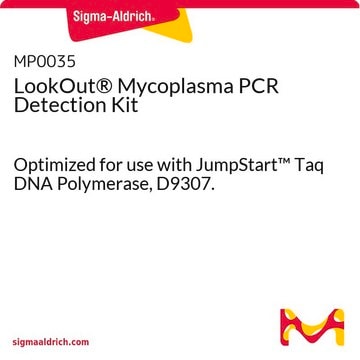NA2010
GenElute™ Blood Genomic DNA Kit
sufficient for 70 purifications
Synonyme(s) :
Blood Genomic DNA, Gen Elute
About This Item
Produits recommandés
Utilisation
sufficient for 70 purifications
Technique(s)
DNA purification: suitable
Température de stockage
15-25°C
room temp
Vous recherchez des produits similaires ? Visite Guide de comparaison des produits
Description générale
Application
- to extract DNA from samples of large granules (LG) and smaller granules (SG) obtained from vasectomized rabbits
- to isolate DNA from the blood samples
- to extract whole blood DNA from the left blood cells
- restriction endonuclease digestions
- PCR
- Southern blots
- sequencing reactions
- cloning
Caractéristiques et avantages
- Starting material: Up to 200 μl of fresh or aged blood
- Expected yield: Up to 10 μg
- Elution volume: 400 μl
- Time required: <40 min
- A260/A280 ratio: 1.6 - 1.9
- Compatible with many anticoagulants, including EDTA, Heparin, and Sodium Citrate
Principe
The expected yields of genomic DNA will vary depending on the amount and nature of the starting material used (for example, 4 to 10 μg of RNase A-treated DNA can be isolated from 200 μl of fresh whole blood in less than one hour). DNA purified with this kit has an A260/A280 ratio between 1.6 and 1.9 and can be up to 50 kb in length.
Autres remarques
Informations légales
En option
Produit(s) apparenté(s)
Mention d'avertissement
Danger
Mentions de danger
Conseils de prudence
Classification des risques
Acute Tox. 4 Oral - Aquatic Acute 1 - Aquatic Chronic 2 - Eye Dam. 1 - Resp. Sens. 1 - Skin Irrit. 2 - STOT SE 3
Organes cibles
Respiratory system
Code de la classe de stockage
10 - Combustible liquids
Certificats d'analyse (COA)
Recherchez un Certificats d'analyse (COA) en saisissant le numéro de lot du produit. Les numéros de lot figurent sur l'étiquette du produit après les mots "Lot" ou "Batch".
Déjà en possession de ce produit ?
Retrouvez la documentation relative aux produits que vous avez récemment achetés dans la Bibliothèque de documents.
Les clients ont également consulté
Protocoles
Whole genome amplification (WGA) of plasma and serum DNA presents a unique challenge due to the small amount of nucleic acid in such samples.
Whole genome amplification (WGA) of plasma and serum DNA presents a unique challenge due to the small amount of nucleic acid in such samples.
Whole genome amplification (WGA) of plasma and serum DNA presents a unique challenge due to the small amount of nucleic acid in such samples.
Whole genome amplification (WGA) of plasma and serum DNA presents a unique challenge due to the small amount of nucleic acid in such samples.
Notre équipe de scientifiques dispose d'une expérience dans tous les secteurs de la recherche, notamment en sciences de la vie, science des matériaux, synthèse chimique, chromatographie, analyse et dans de nombreux autres domaines..
Contacter notre Service technique











